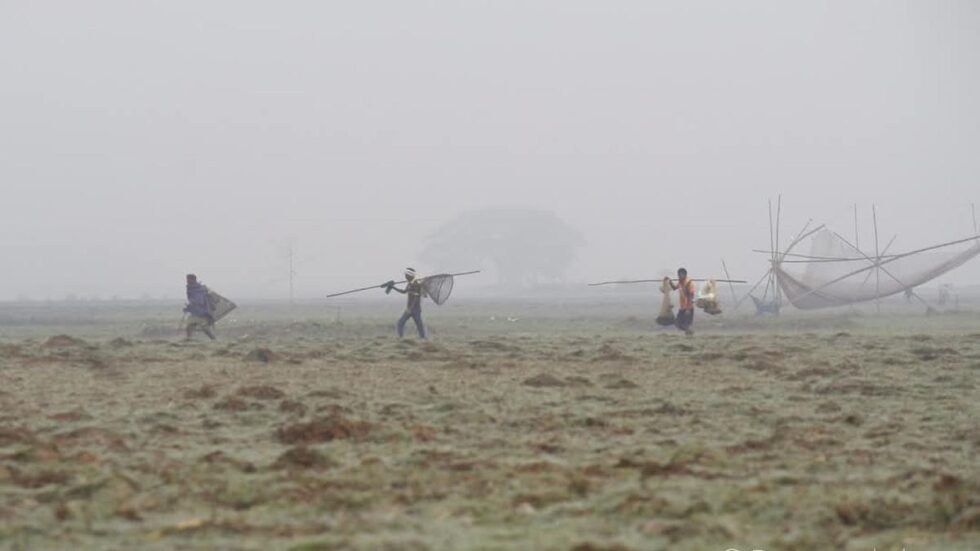
Livestock farmers of 21 villages near Guwahati have opposed the Assam government’s move to transform a large chunk of grazing land adjoining an ecologically fragile wetland into a logistics park.
On April 7, the Kamrup District Commissioner’s office issued a notification proposing the acquisition of 150 bighas, or 49.59 acres, of the Dorabeel grazing field located in Palashbari revenue circle. The Assam Industrial Development Corporation (AIDC) Limited intends to hand over the land to a Kolkata-based company for the establishment of a logistics park.
“This village grazing land is the only one of its kind in this part of the State and serves as a critical lifeline for the livelihoods of the residents of 21 surrounding villages. Various social organisations and indigenous communities strongly oppose this move, which threatens their existence,” said Ashwini Mazumdar of the Dorabeel Village Grazing Field Protection Convening Committee, representing the villagers to be affected by the logistics park.
According Kanak Chandra Das who is a member of the committee, more than 3,000 families dependent on this grazing land for livestock rearing would be severely affected by the move.
“During the monsoon, the grazing land merges with the Dorabeel (wetland), supporting fish production that sustains some 2,000 families from 10 villages. This project will disrupt their livelihoods,” he said.
Another panel member, Abinash Kalita, said some 500 families from 12 villages rely on the superior soil of this land for pottery. “The construction of the park will destroy their means of sustenance while some 1,000 families engaged in farming on the surrounding fertile land will lose their source of earning,” he said.
The committee members said the existing industries close to Dorabeel have already polluted the soil, water, and air. Further construction will exacerbate environmental degradation and adversely impact public health.
“For centuries, this grazing land has been a cornerstone of religious heritage and cultural traditions. It hosts the Suwari festival of seven villages, Magh Bihu bonfires, and contributes to sustaining folk culture. Its acquisition endangers our identity and existence,” said Deepak Kumar Das, another committee member.
“The traditional knowledge systems of the surrounding communities, rooted in their culture, will be disrupted by this acquisition,” he added.
Threatening biodiversity
Dipankar Thakuria, a panel member, said the logistics park project threatens the biodiversity of Dorabeel, particularly endangering the Gangetic dolphin (the national aquatic animal) and its breeding grounds in Kulsi river nearby.
“During the monsoon, the grazing land absorbs floodwater from Dorabeel. Reducing its area by 150 bighas will cause flooding in nearby villages, leading to potential disasters,” he said.
Mr. Thakuria further said the grazing land and Dorabeel are home to more than 200 species of resident and migratory birds. “Damage to this area will disrupt ecological balance, negatively impacting agriculture, tourism, and socio-economic aspects,” he said.
A study by the committee also showed that Dorabeel supports 74 fish species, 26 ornamental plants, seven edible or medicinal plants, six plants used as fertiliser, and three plants used for household goods. Communities relying on these resources will be directly harmed, it said in its report.
“The wetland is a habitat for 10 mammal species, including the river dolphin, 23 reptile species, 68 butterfly species, and various insects, amphibians, and molluscs. Damage to this area will disrupt ecological balance and increase human-wildlife conflict,” it said.
“We, therefore, are against the construction of the logistics park and urge the administration to address our concerns. If necessary, we will launch a robust public movement to protect our rights,” the committee said.







